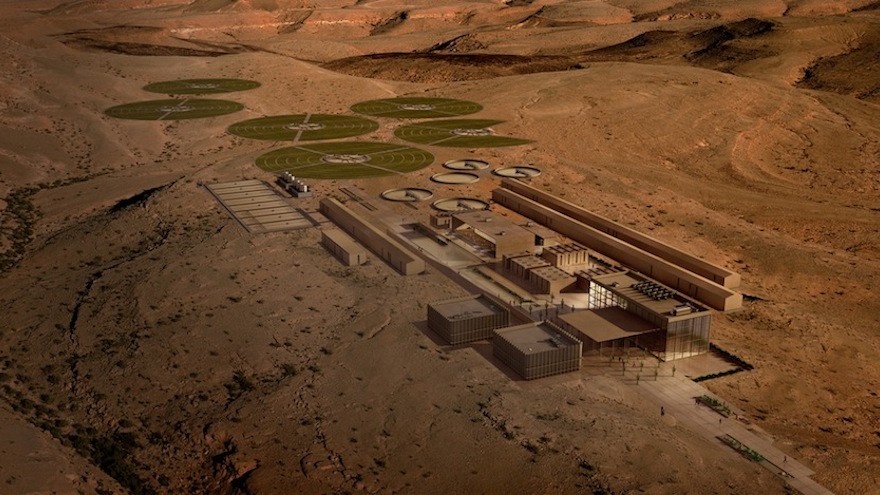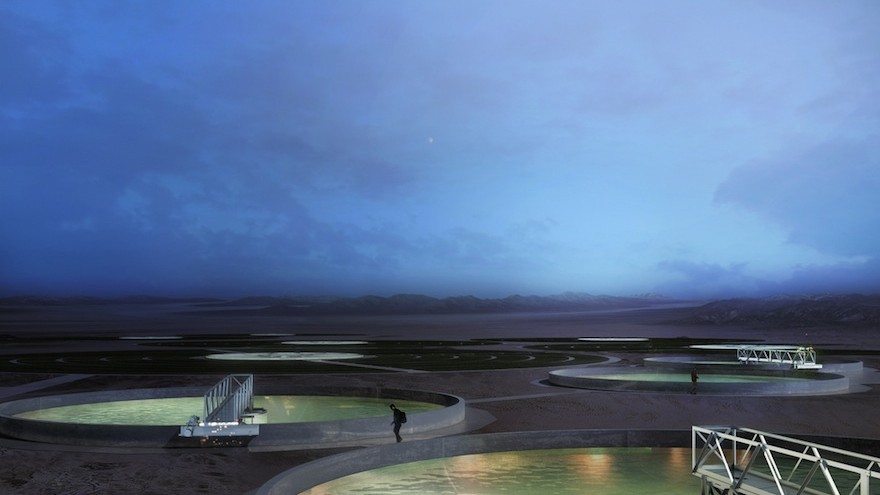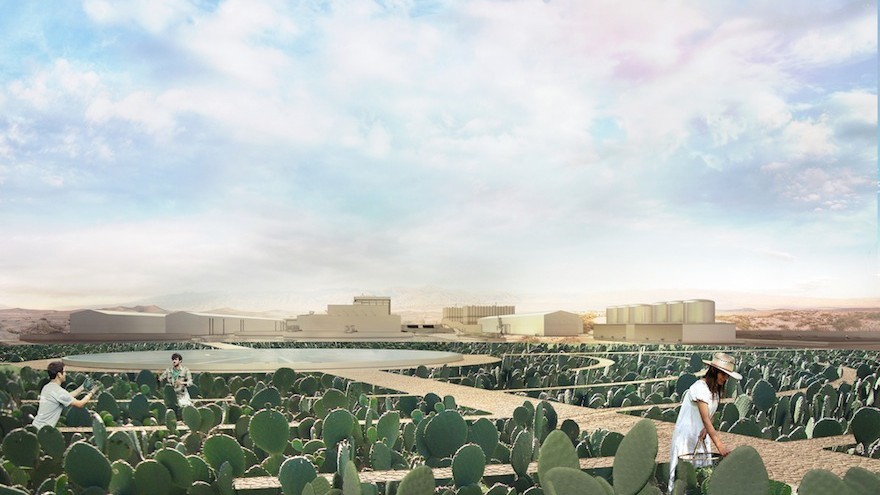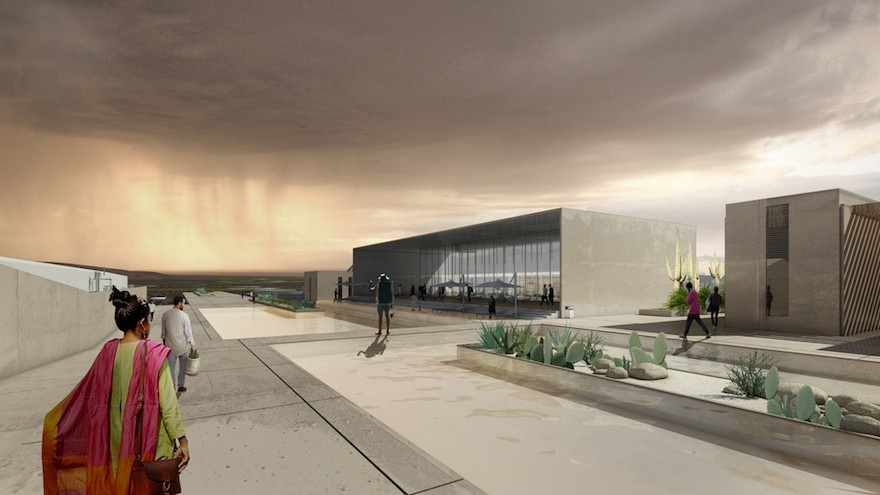Los Angeles-based designer Ali Chen has come up with a project called Grassroots Cactivism that aims to solve California’s ongoing drought problems by utilising the prickly pear cactus. Her design concept recently won Archinect’s inaugural Dry Futures competition in the Speculative category.
Chen’s design imagines a hybrid cacti farm, where the nopales cactus (more commonly known as the prickly pear cactus) is used in cooking, water sanitation and as a product for animal fodder.
The nopales cactus is safe for human and animal consumption, and has been used in certain traditional recipes for centuries. Chen’s farm features a cactus café where cactus cuisine will be served, and also where cookery workshops will take place to educate people on the uses of this edible plant.
The cafe and cookery classes form part of what Chen refers to as the potential for ecotourism. She also designates areas of the farm for a water museum, a cactus garden and resort villas and accommodation.
Growing feed for livestock makes up a massive portion of California’s agriculture. The nopales cactus can be used to make nutritious animal feed, and the pulp that is separated in the feed production can be used to purify wastewater.
Chen designed the cactus farm concept to open up conversations about the untapped uses of the prolific and drought resistant cactus. Her winning design has the potential to change the perception that cactus is a useless plant and perhaps open up possibilities for California, and other drought-stricken parts of the world, to utilise the hardy plant more ingeniously in the future.
All images courtesy Ali Chen.










